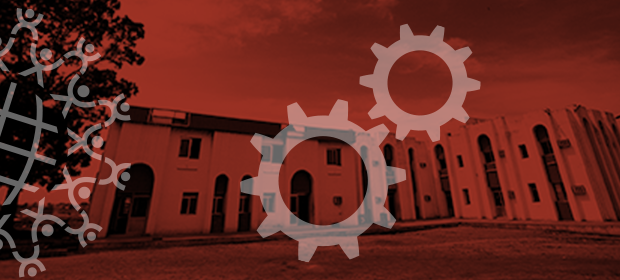Where We Work
See our interactive map


A novel approach by the US Agency for International Development (USAID) in Senegal is getting cross-cutting results by bringing together different projects to share resources and collaborate across sectors. While USAID began this approach long before the global outbreak of COVID-19, the partnerships and systems it has put into place are helping the agency continue to get results and improve health amid the pandemic.
In 2016, the agency moved three of its programs—one focused on health services, one on health systems, and one on governance—into one regional office in Kolda, Senegal, with the goal of finding more efficient and effective ways to work together.
The result: USAID dollars are stretching further and together the programs are providing better, more sustainable benefits for the people of Senegal.
Now the projects are working together to combat COVID-19.
In international development, multisector collaboration is often a goal—we know that, for example, poor environmental health affects nutrition, which affects human health, which affects children’s education and gender inequality, and so on. By sharing resources and expertise, we can be more efficient and boost our results across sectors—goals that become especially urgent during a pandemic.
But this is often difficult. Due in part to the way our donors and funding streams work, we tend to each focus on our own area of expertise. USAID wanted its partners to do things differently in Senegal.
The three programs, all funded by USAID, are:
Being in the same building over the past three years has helped staff from the different USAID programs get to know each other’s work, spot new ways to combine their efforts, and share a single pool of resources, including staff, office equipment, and vehicles.
The approach has amplified the three programs and made them more effective.
They began by sharing their action plans and strategies with each other and developing what they called a synergy action plan—a way to integrate the different programs so they each must rely on one another to get the work done.
For example, Neema and Health Systems Strengthening looked to GoLD to advocate with elected officials about the importance of health-related activities and mobilizing resources to support them, while GoLD came to Neema to support care for people living with HIV through community insurance schemes.
Overall, the approach has amplified the three USAID programs and made them more effective, unified partners to local governments and other authorities in Senegal.
“We didn’t know in the beginning that these close working relationships formed through the action plan would end up helping Senegal address a global pandemic,” says Babacar Gueye, IntraHealth’s country director in Senegal. “But now the projects are working together to combat COVID-19 by sharing our interventions on the disease, developing a joint response workplan, identifying synergic actions, and by putting in place six working groups on synergic areas of interventions.”
Over the past two years, the three programs have:
By integrating its projects’ efforts across sectors and structuring them to mutually reinforce one another, USAID is amplifying its impact and helping more communities in Senegal thrive.
Read more about the Neema project.
Seydi Ba and Sujata Bijou contributed reporting to this piece. IntraHealth’s Neema project is funded by USAID.



